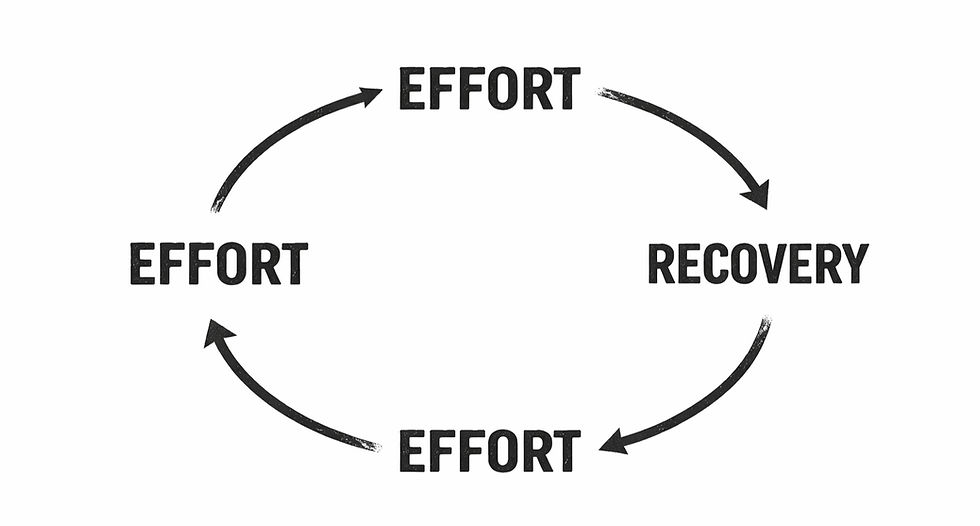A Morning Routine for Mental Health
- Lauren Lee
- Oct 20, 2025
- 4 min read

Welcome to today's blog! Today we will explore various methodologies proven by psychology that are vital to starting your day with the best mindset possible.
Oftentimes, we feel reluctant to wake up every morning. Either we are dreading a long list of to-do's, we have a big, stress-inducing event ahead of us, or we simply feel anxious for the day. These emotions are completely normal and valid, but what if you stepped outside for 10 minutes to set your circadian rhythm for the rest of the day? Or walked around for a few minutes to get your body moving?
Making small but meaningful changes to your morning routine can have a powerful impact on the trajectory of your day-to-day life. How? Let's delve into the psychology behind "morning anxiety" and discuss what strategies can help us begin the day with a smile.
Definition, Causes, & Symptoms
The first question that needs to be addressed is, "What is morning anxiety and what causes it?" Simply put, morning anxiety is the experience of waking up every morning with heightened feelings of stress and worry. Most frequently, as Dr. Austerman explained in a Cleveland Clinic article, it is usually related to the night before when you go to sleep thinking about something and then you wake up still affected by it.
Interestingly, morning anxiety has zero biological differences from social anxiety or general anxiety. This explains just how influential the time of day is in eliciting anxious feelings.
Symptoms can include:
Stomach pain or discomfort
Headaches
Racing thoughts
Rapid heart rate
Tightness or heaviness in the chest
Tense muscles
Irritability
Feeling "wound up" or "on edge"
Psychological Perspective
Essentially, all of those anxious thoughts and nauseating symptoms are a result of your body undergoing something called a Fight or Flight response: A process that is triggered when an individual perceives a threatening or frightening situation.
The Fight or Flight response is driven by the Sympathetic Nervous System which constitutes the part of the Peripheral Nervous System responsible for controlling bodily functions and responding to stressful situations. So, when you wake up with a stomach ache or a tight feeling in your chest, it means your body is perceiving danger. This reaction can exacerbate building worries and put you into a negative headspace before the day even begins.
Let's explore the most effective strategies for combating morning anxiety and establishing a morning routine that will set the tone for the rest of your day!
Building your Morning Routine
Consistency. The first step in ensuring you wake up with mental clarity and emotional wellbeing is a consistent sleep schedule. Not only is it critical to get enough sleep but to establish a consistent sleep and wake time. Doing so will stabilize your circadian rhythm, which the National Institutes of Health defines as "the 24-hour internal clock in our brain that regulates cycles of alertness and sleepiness by responding to light changes in our environment." Irregular wake times are proven to disrupt the circadian rhythm which leads to a poorer sleep quality and less energy throughout the day.
Light Exposure. Andrew Huberman, a neuroscientist and professor at Stanford University, recommends stepping outside for 10 minutes right after waking up. He explains that "Viewing sunlight within the first hours of waking increases early-day cortisol release and prepares the body for sleep later that night" (Huberman, 2023). Additionally, a "morning spike in cortisol" can strengthen the immune system, your body's metabolism, and your ability to concentrate throughout the day. And the benefits don't stop there! Sun exposure in the morning regulates your “circadian clock."
Breathing exercises. In past blogs, I've mentioned breathwork quite often-but for good reason! Breathing significantly reduces stress by lowering blood pressure, slowing heart rate, decreasing the amount of stress hormones in your bloodstream, heightening physical energy, and increasing calmness and wellbeing. An easy technique is Square Breathing: Inhale for 4 seconds, hold for 4 seconds, exhale for 4 seconds, and hold for 4 seconds.

Movement. Physical activity can boost your mood by releasing "happiness" hormones called endorphins. It can also reduce stress and enhance your mental focus. Try moving around for 5-10 minutes. You will feel a drastic physical and mental difference compared to sitting down immediately after waking up.
Set habits. Make the bed. Walk around. Clean your desk. Open the windows. Simple tasks will allow your mind to quiet down while your body works. Creating daily habits-especially in your morning routine-can give yourself the chance to find calmness. Worry happens when we are forced to make multiple decisions. If you adopt easy, mindless tasks for the beginning of your day that don't require any decision-making, you'll find yourself less stressed.
These strategies can change the way you wake up each morning. But remember, every morning is an opportunity to grow and learn. With the right mindset and the right tools, you'll find appreciation for the morning time!
Thank you for reading today's blog. Until the next one!
Sources
Olly J. (2025, January 10). I Built the Scientifically “Perfect” Morning Routine. Medium; Change Your Mind Change Your Life. https://medium.com/change-your-mind/i-built-the-scientifically-perfect-morning-routine-78decde1be00
Reddy, S., Sharma, S., & Reddy, V. (2023). Physiology, Circadian Rhythm. Nih.gov; StatPearls Publishing. https://www.ncbi.nlm.nih.gov/books/NBK519507/
Morning Anxiety: Why Do I Get It and How To Cope. (n.d.). Cleveland Clinic. https://health.clevelandclinic.org/morning-anxiety





Comments